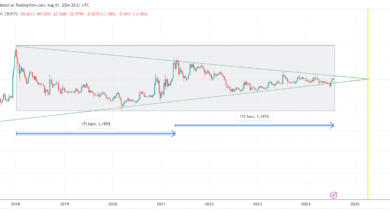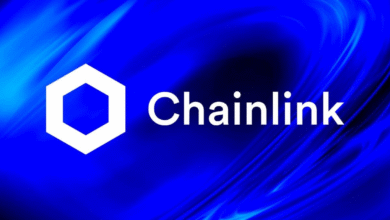Bitcoin Adoption Myths: What You Should Know

In the ever-evolving world of cryptocurrency, Bitcoin adoption myths abound, leading many potential users astray. These misconceptions often stem from oversimplified perceptions about Bitcoin’s privacy features, the risks associated with investing in this digital asset, or the belief that getting rich quickly is a viable strategy in the crypto space. However, understanding the reality behind these Bitcoin misconceptions is crucial for anyone considering investing in Bitcoin. Acknowledging the inherent Bitcoin investment risks can safeguard users from misguided motivations that may result in significant financial loss. As the cryptocurrency adoption rate climbs, debunking these myths becomes essential for fostering a realistic and informed approach to Bitcoin.
The rise of Bitcoin has brought with it a plethora of misunderstandings and misinformation, leading to common myths that can hinder effective cryptocurrency use. For instance, many believe that Bitcoin offers complete anonymity when, in fact, its pseudonymous nature is often overstated. Furthermore, the perception that Bitcoin is a simple and risk-free investment can lead individuals into financial peril if they are not cautious. Additionally, the excitement surrounding crypto often ignites unrealistic expectations of rapid wealth, blinding newcomers to the essential principles of prudent investing. Addressing these falsehoods is vital for fostering a knowledgeable and resilient community around cryptocurrency.
The Truth About Bitcoin Privacy
Contrary to popular belief, Bitcoin is not a completely anonymous currency. While many newcomers are drawn to the idea of using Bitcoin for private transactions, they often overlook the fact that each transaction is recorded on an immutable public ledger: the blockchain. This means that, although wallet addresses do not contain personally identifiable information, transactions can still be traced back to users, especially if they have engaged with Know Your Customer (KYC) compliant exchanges. Notably, law enforcement agencies have utilized blockchain analytics to track transactions back to individuals, effectively debunking the myth that Bitcoin ensures total privacy.
Edward Snowden highlighted these concerns when he pointed out that Bitcoin transactions should be regarded as pseudonymous rather than anonymous. For those considering investment in Bitcoin primarily for its privacy features, it’s crucial to understand your exposure. The reliance on BTC for illicit activities is misplaced; every move you make on the blockchain could be monitored. Alternatives like P2P platforms such as Vexl offer a workaround for those seeking cash transactions, but even these methods carry risks and should not be the primary motivation for adopting Bitcoin.
Understanding Bitcoin Investment Risks
The idea that investing in Bitcoin is straightforward can be misleading. Many new investors approach the cryptocurrency market assuming that it works like traditional investments, which can lead to a lack of understanding about the associated risks. The phrase ‘Not your Keys, not your Coins’ emphasizes the importance of managing your own private keys. If investors do not take custody of their Bitcoin, they run the risk of losing their funds to hacks or mismanagement from third-party exchanges. Historical cases such as the collapse of exchanges like Mt. Gox and more recently, FTX, underscore the potential perils of entrusting your assets to centralized authorities.
Investing in Bitcoin requires not only research but also a commitment to understanding and protecting one’s investment. Security measures, including using hardware wallets, are essential for safeguarding cryptocurrencies from being confiscated or hacked. Moreover, one significant aspect that often goes unexamined is the volatility of Bitcoin. This isn’t an investment for those looking for immediate returns; instead, it demands a strategy that accounts for market swings and the possibility of price downturns.
Debunking Bitcoin Adoption Myths
As Bitcoin continues to become mainstream, numerous myths about its adoption persist. One prevalent myth is the assumption that Bitcoin will always maintain its status as a top-performing asset. While Bitcoin has shown tremendous growth since inception, the dynamics of cryptocurrency adoption are ever-evolving. Factors such as regulatory changes, technological advancements, and competition from other cryptocurrencies can significantly impact its market position. Understanding these shifts is vital for anyone looking to invest in Bitcoin.
Moreover, there’s a myth suggesting that Bitcoin is the ultimate solution to financial instability. While it has indeed been touted as a ‘safe haven’ asset, potential investors must realize that it is still subject to market risks and fluctuations. As the landscape of cryptocurrency evolves, so too do its potential investment pitfalls, and a well-rounded perspective on Bitcoin’s role in the economic framework is essential for sound investment decisions.
The Bitcoin Investment Strategy: Patience is Key
Many newcomers to Bitcoin rush in with the hope of quick profits, flooded with excitement from tales of skyrocketing prices. However, genuine success with Bitcoin often requires a patient, long-term strategy. Historical data underscores the benefits of maintaining an investment for several years rather than succumbing to the whims of short-term volatility. Investors who adopt a ‘buy and hold’ strategy have seen substantial gains over time, showcasing that foresight and resilience are vital in navigating the cryptocurrency landscape.
Additionally, a meticulous approach can help alleviate the mental strain that comes with market fluctuations. For instance, implementing a regular Bitcoin savings plan can significantly mitigate the anxiety of timing the market while still allowing investors to participate in Bitcoin’s growth potential. This method embodies a disciplined investment strategy that promotes consistency and can yield positive results even amid market chaos.
Myths About the Future of Bitcoin
As Bitcoin continues to gain attention, myths also abound regarding its future. One such myth is that Bitcoin is a bubble set to burst at any moment. While significant corrections have occurred in the past, calling Bitcoin a bubble neglects the numerous improvements and institutional interests that have emerged since its inception. Institutions like BlackRock and other financial giants increasingly recognize Bitcoin’s potential as a stable asset, indicating a shift in perception that could sustain its long-term viability.
Moreover, many skeptics argue that Bitcoin’s energy consumption poses a substantial risk to its future. However, advancements in technology and a shift toward renewable energy sources for mining can mitigate these concerns. As the Bitcoin network evolves, its resilience in the face of evolving environmental and regulatory landscapes may well provide a foundation for its longevity, countering the myths that suggest its imminent demise.
Bitcoin and the New Generation of Investors
The demographic of Bitcoin investors is changing; younger generations are becoming increasingly conscious of cryptocurrency’s potential. Many Gen Z and millennial investors view Bitcoin not only as a lucrative investment but also as a means of espousing their values—such as financial freedom and decentralization. This shift in mindset represents a promising indication for Bitcoin’s future, suggesting a trend toward broader adoption and higher engagement among new investors.
Social media platforms have played a pivotal role in shaping younger investors’ perceptions of Bitcoin and cryptocurrency as a whole. Through influencers, forums, and informative content, many have discovered the intricacies of investing in Bitcoin and the community surrounding it. Engaging with these digital conversational platforms can foster a more profound understanding of the cryptocurrency market, urging investors to look beyond simplistic myths and recognize the complexities of this financial asset.
Educational Resources for Bitcoin Newcomers
For individuals just venturing into the world of Bitcoin, educational resources are abundant yet often overwhelming. It is crucial for newcomers to seek out credible information to understand both the potential benefits and risks of investing. Online courses, thoughtful articles, and community forums can provide a foundational knowledge that is indispensable before entering the marketplace. Learning about concepts like blockchain technology, market volatility, and wallet security is essential for making informed decisions.
Moreover, connecting with established members of the Bitcoin community can offer invaluable insights. Networking within forums and participating in discussions can clarify misconceptions and help new investors gain confidence. The cryptocurrency space is built on shared knowledge and experiences, making it vital for beginners to engage actively within the community while equipping themselves with the tools to navigate this increasingly complex financial landscape.
The Role of Regulations in Bitcoin Adoption
As the regulatory landscape continues to evolve, many potential investors remain unaware of how regulations impact Bitcoin adoption. Regulatory scrutiny can shape the market dynamics and influence how cryptocurrency is perceived by the public. Countries are at various stages of integrating Bitcoin into their financial systems, with some striving for clear frameworks while others remain hesitant. Understanding local regulations is paramount for anyone looking to invest and mitigate legal risks, keeping in mind that ongoing developments can significantly affect market conditions.
Furthermore, comprehensive regulations may provide the legitimacy Bitcoin needs to reach a broader audience. By establishing a secure and stable environment, regulators could boost confidence and encourage more people to invest in Bitcoin. However, it’s essential for investors to stay informed about changing laws in their region, ensuring they navigate the complexities of compliance while making educated investment decisions.
The Impact of Technological Innovations on Bitcoin
Technological advancements are vital to the evolution of Bitcoin, making it essential for investors to stay abreast of innovations that influence the cryptocurrency’s functionality. From improved transaction speeds to Level 2 solutions like the Lightning Network, technology continues to enhance the user experience and overall adoption of Bitcoin. Understanding the implications of these developments not only fosters confidence in investment but also emphasizes the ever-improving efficiency of Bitcoin as a medium of exchange.
Additionally, as Bitcoin adoption grows, so does the need for more robust security measures and user-friendly interfaces. Innovations in wallet security, such as biometric authentication and multi-signature processing, play crucial roles in protecting users’ investments. Staying updated on these technological shifts can empower investors to make informed choices and appreciate how these advancements will shape Bitcoin’s future in the financial ecosystem.
Frequently Asked Questions
What are some common Bitcoin adoption myths that new investors should be aware of?
One prevalent Bitcoin adoption myth is that it offers complete anonymity for transactions. In reality, Bitcoin’s blockchain is transparent, making transactions traceable. This misconception can lead new investors to believe they can buy Bitcoin for illegal activities, which is a significant risk. Another myth is that investing in Bitcoin is as straightforward and risk-free as traditional stocks. However, it requires understanding cryptocurrency investment risks, as Bitcoin custody issues and market volatility are bigger concerns. Lastly, the idea that quick profits can be made easily from Bitcoin investments often leads to disappointment; long-term holding is typically more rewarding.
How does the misconception about Bitcoin privacy affect its adoption?
The myth of Bitcoin as a fully anonymous payment method hampers its adoption because it misleads users about the potential risks and responsibilities involved. While newcomers may seek Bitcoin for privacy, they often overlook that transactions can be traced back to them, especially through Know Your Customer (KYC) regulations at exchanges. This lack of true anonymity can deter users from adopting Bitcoin as intended, causing them to seek alternative privacy solutions.
Why do some believe investing in Bitcoin is completely safe?
Many new investors are drawn to Bitcoin due to its rising popularity and perceived legitimacy, yet the misconception that it is a ‘comfortable’ investment can be dangerous. Unlike traditional investments, Bitcoin requires careful custody management and an understanding of market dynamics. Investors may overlook risks like hacking, loss of private keys, or exchange failures, believing their investments are secure due to the overall positive market sentiment. This can lead to significant financial loss.
Is the idea of getting rich quickly with Bitcoin a common misconception?
Yes, the ‘get rich quick’ mentality surrounding Bitcoin is a common myth that can mislead new investors. Many are attracted to Bitcoin by stories of rapid profits during bullish market phases. However, the reality is that Bitcoin investment risks include high volatility, and success generally comes from long-term holding strategies rather than short-term trading. New investors should focus on sustainable investment practices, such as regular savings plans, rather than chasing instant wealth.
What misconceptions exist about Bitcoin’s role in cryptocurrency adoption?
One common myth is that Bitcoin is the only cryptocurrency that matters in the adoption landscape. While Bitcoin was the first cryptocurrency and remains the most recognized, it has spurred the growth of thousands of altcoins, each with unique advantages and use cases. This perception undervalues the broader cryptocurrency adoption movement and may lead to a narrow focus that misses opportunities within the evolving digital asset ecosystem.
How can understanding Bitcoin misconceptions aid in better investment decisions?
Recognizing and debunking Bitcoin adoption myths can significantly improve decision-making for potential investors. By understanding the realities of Bitcoin privacy, risks associated with custody, and the volatility of investment returns, individuals can adopt a more informed and cautious approach. This awareness encourages a focus on long-term strategies and encourages them to invest only what they can afford to lose, mitigating potential financial pitfalls.
| Myth | Explanation | Key Takeaway |
|---|---|---|
| Bitcoin for anonymous payments | Many newcomers believe Bitcoin offers complete anonymity for online transactions. However, blockchain transparency allows for tracking, making it less anonymous than assumed. | Bitcoin transactions are pseudonymous and can be traced, especially through KYC exchanges. Privacy is more complex than presumed. |
| Bitcoin as a “comfortable” investment | While investing in Bitcoin seems straightforward, true ownership requires managing private keys. If you don’t hold your keys, you don’t own your Bitcoin. | Investing in Bitcoin requires understanding custody and security risks. It’s not a passive investment like stocks; responsibility is key. |
| Buying Bitcoin to get rich quickly | Many are attracted to Bitcoin for rapid gains, but price fluctuations can be severe and risky. Long-term holding strategies are usually more effective. | Patience and a long-term investment approach are crucial for success in Bitcoin. Avoid chasing quick profits to mitigate loss risks. |
Summary
Bitcoin adoption myths have led to widespread misconceptions that could hinder potential investors. It’s essential to debunk these myths to make informed decisions. Understanding that Bitcoin transactions are not entirely anonymous, recognizing the importance of managing your private keys, and opting for a long-term investment strategy instead of seeking quick wealth are crucial for anyone interested in entering the cryptocurrency market. This clarity on Bitcoin and its realistic potential can facilitate a more responsible and informed approach to investing.



